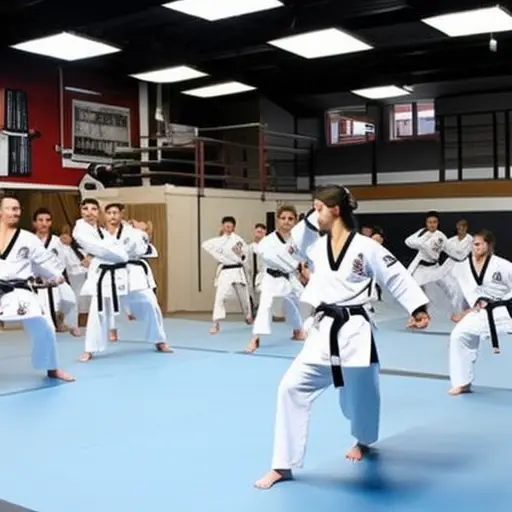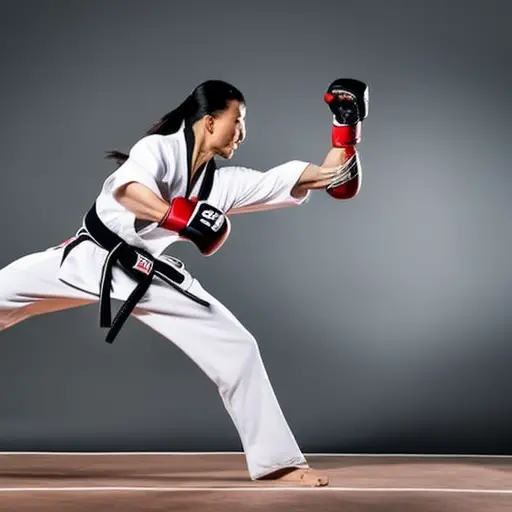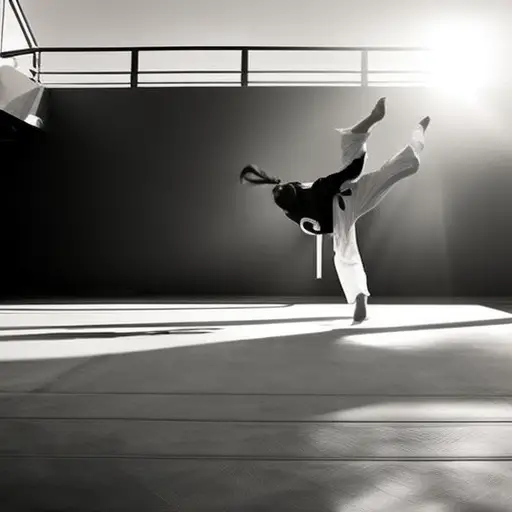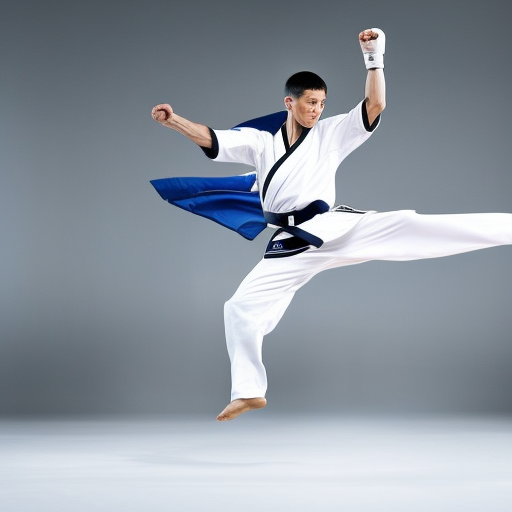The Philosophy Behind Taekwondo
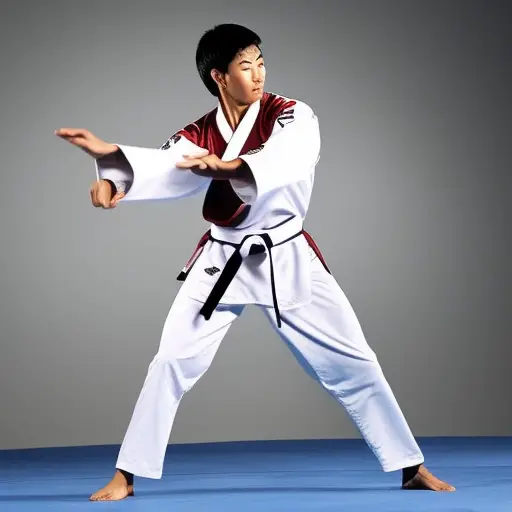
In the realm of martial arts, Taekwondo stands out as a discipline that encompasses both physical prowess and a rich philosophical foundation. Rooted in ancient Eastern traditions, the philosophy behind Taekwondo delves deep into the principles of discipline, respect, integrity, perseverance, and self-control.
This article aims to explore the profound connection between mind and body in Taekwondo practice, highlighting how the philosophy behind this martial art can extend beyond the training mat and into everyday life.
The Origins of Taekwondo Philosophy
One of the key aspects in understanding the philosophy behind Taekwondo is exploring its origins and the historical development of its philosophical principles.
Taekwondo, a Korean martial art, has its roots in ancient Korea, where various forms of martial arts were practiced. The origins of Taekwondo can be traced back to the Three Kingdoms period (57 BC – 668 AD), where these martial arts were used for self-defense and military training.
The principles of Taekwondo philosophy have evolved over time, influenced by various factors such as Korean history, culture, and the martial arts traditions of neighboring countries such as China and Japan. The philosophy behind Taekwondo is rooted in five key principles: courtesy, integrity, perseverance, self-control, and indomitable spirit. These principles serve as the foundation of Taekwondo practice, emphasizing moral and ethical values alongside physical training.
The origins of Taekwondo philosophy can also be seen in the influence of Confucianism and Buddhism, which were prevalent in Korea during the development of the martial art. Confucianism emphasized the importance of self-discipline, respect for others, and the pursuit of moral excellence. Buddhism, on the other hand, introduced concepts of inner peace, meditation, and the cultivation of a compassionate and non-violent mindset.
The Tenets of Taekwondo: Discipline, Respect, and Integrity
Discipline, respect, and integrity are fundamental tenets of Taekwondo, shaping the moral and ethical foundation of this martial art. Taekwondo practitioners are expected to embody these principles both inside and outside the training hall.
Discipline is essential for mastering the techniques and maintaining a focused mindset during training. It requires adhering to a strict regimen, showing up on time, and following the instructions of the instructor. This discipline instills a sense of resilience and self-discipline that can be applied to various aspects of life.
Respect is another key value in Taekwondo. Practitioners are taught to show respect to their instructors, training partners, and opponents. This fosters a sense of humility and allows for a healthy learning environment. Respect also extends to oneself, as practitioners are encouraged to treat their bodies with care and avoid engaging in harmful behavior.
Integrity is the third tenet that is emphasized in Taekwondo. It involves being honest, trustworthy, and upholding moral principles. Practitioners are encouraged to act with integrity both inside and outside of training, making ethical choices and standing up for what is right.
The Role of Perseverance in Taekwondo Practice
Perseverance plays a pivotal role in the practice of Taekwondo, as it reinforces the importance of never giving up and emphasizes the ability to overcome challenges through persistence.
This martial art requires practitioners to face physical, mental, and emotional obstacles, and the only way to progress is to push through and continue training.
Importance of Never Giving up
How does the role of perseverance contribute to the importance of never giving up in Taekwondo practice?
In the world of Taekwondo, the importance of resilience and the power of determination cannot be understated. Perseverance is a core principle of this martial art, as it requires practitioners to continuously push themselves beyond their limits and overcome challenges.
Taekwondo training is physically demanding and mentally challenging, and it is during these moments of struggle that perseverance plays a crucial role. By cultivating a mindset of never giving up, practitioners learn to face adversity head-on and develop the mental fortitude necessary to achieve their goals.
Through perseverance, Taekwondo practitioners develop a strong sense of discipline, resilience, and determination, which not only enhances their physical abilities but also carries over into their daily lives.
The importance of never giving up in Taekwondo practice lies in the transformative power of perseverance, enabling practitioners to become stronger, more resilient individuals both on and off the mat.
Overcoming Challenges Through Persistence
Through unwavering determination and a steadfast commitment to their practice, Taekwondo practitioners are able to conquer obstacles and achieve success.
Taekwondo is not just a physical activity; it is a way of life that teaches individuals how to overcome challenges through persistence.
In the practice of Taekwondo, students are constantly faced with various obstacles, both physical and mental. However, it is through their perseverance that they are able to overcome these obstacles and build resilience.
Taekwondo training instills discipline, focus, and mental strength, which are essential qualities for overcoming challenges in all aspects of life.
By continuously pushing themselves beyond their limits, Taekwondo practitioners develop a mindset of resilience and determination. This mindset enables them to face obstacles head-on, adapt to changing circumstances, and ultimately achieve their goals.
Through the practice of Taekwondo, individuals learn that success is not achieved overnight but through consistent effort and perseverance.
Understanding the Connection Between Mind and Body in Taekwondo
One key aspect of Taekwondo is the integral link between the mind and the body, which plays an essential role in the practitioner’s overall development. Taekwondo is not just a physical martial art; it also emphasizes the cultivation of mental strength. The mind-body connection in Taekwondo is based on the belief that a strong and focused mind is necessary to achieve optimal physical performance.
In Taekwondo, mental strength is developed through various training methods such as meditation, visualization, and breathing exercises. These practices help practitioners develop self-discipline, concentration, and control over their thoughts and emotions. By training the mind, Taekwondo practitioners can improve their ability to stay calm and composed in high-pressure situations, enabling them to make quick and accurate decisions.
The mind-body connection in Taekwondo also extends to the physical aspect of the martial art. Techniques in Taekwondo require precise coordination between the mind and the body. Practitioners must be able to synchronize their movements with their thoughts to execute kicks, punches, and blocks effectively. This connection allows for greater power, speed, and accuracy in their techniques.
Furthermore, the mind-body connection in Taekwondo is believed to promote overall well-being. By training both the mind and the body, practitioners can achieve a sense of balance and harmony. This holistic approach to training encourages practitioners to develop not only physical strength but also mental resilience, leading to personal growth and self-improvement.
The Importance of Self-Control in Taekwondo Training
Regularly practicing self-control is essential in Taekwondo training as it allows practitioners to maintain discipline and focus in their techniques. Self-control is the ability to regulate one’s actions, thoughts, and emotions in order to achieve a desired outcome. In the context of Taekwondo, self-control plays a crucial role in the development of self-motivation and mental fortitude.
Here are three reasons why self-control is important in Taekwondo training:
-
Maintaining technique precision: Self-control helps practitioners to execute their techniques with precision and accuracy. By staying focused and disciplined, they are able to perform their moves with the right amount of power, speed, and control.
-
Enhancing mental fortitude: Taekwondo training can be physically and mentally challenging. Self-control helps practitioners develop mental fortitude, enabling them to overcome obstacles, push through fatigue, and stay motivated during difficult times.
-
Promoting self-motivation: Self-control helps practitioners to stay motivated and committed to their training. It allows them to set goals, stay disciplined, and persevere through setbacks. With self-control, practitioners are able to maintain their drive and passion for Taekwondo, leading to continuous improvement and growth.
Applying Taekwondo Philosophy in Everyday Life
Three key principles of Taekwondo philosophy can be applied in everyday life to promote personal growth and well-being. By incorporating Taekwondo principles into our daily routine, we can enhance our physical, mental, and emotional well-being.
The first principle is respect. In Taekwondo, respect is shown towards instructors, opponents, and oneself. This principle can be applied in everyday life by treating others with kindness, listening to different perspectives, and valuing oneself. By practicing respect, we create a harmonious environment and build meaningful relationships.
The second principle is self-discipline. Taekwondo requires discipline to consistently train and improve. In daily life, self-discipline can be practiced by setting goals, managing time effectively, and staying focused on tasks. By cultivating self-discipline, we can achieve personal and professional success.
The third principle is perseverance. In Taekwondo, practitioners face challenges and obstacles, but they persist until they overcome them. In everyday life, perseverance means not giving up in the face of adversity, staying committed to our goals, and learning from failures. By embracing perseverance, we can develop resilience and achieve long-term success.
Frequently Asked Questions
What Are the Physical Benefits of Practicing Taekwondo?
Practicing taekwondo offers numerous physical benefits. It improves physical fitness through cardiovascular exercise, strength training, and flexibility. Additionally, taekwondo training equips individuals with self-defense skills, enhancing their overall personal safety and well-being.
How Does Taekwondo Philosophy Promote Mental Well-Being?
Promoting mindfulness and enhancing self-discipline, the philosophy behind Taekwondo fosters mental well-being. By emphasizing the importance of focus, perseverance, and self-control, practitioners develop a heightened sense of self-awareness and inner calm.
Can Anyone Practice Taekwondo, Regardless of Age or Physical Ability?
Regardless of age or physical ability, taekwondo promotes inclusion by offering adaptations and modifications to accommodate various individuals. Its philosophy emphasizes the development of mental and physical well-being, making it accessible to anyone interested in practicing.
Are There Any Specific Meditation or Breathing Techniques Used in Taekwondo Practice?
In the practice of Taekwondo, specific meditation techniques and breathing exercises are employed. These techniques aid in developing focus, mindfulness, and control over one’s body and mind, enhancing the overall physical and mental aspects of the martial art.
How Does Taekwondo Philosophy Teach Students to Handle Conflict and Adversity?
Taekwondo philosophy teaches students valuable skills in handling conflict and overcoming adversity. Through discipline, self-control, and respect for others, practitioners learn to approach challenging situations with calmness, perseverance, and determination.
Conclusion
In conclusion, the philosophy behind Taekwondo encompasses discipline, respect, integrity, perseverance, and self-control. These tenets form the foundation of the martial art, emphasizing the connection between the mind and body. Taekwondo practitioners strive to apply these principles not only in their training but also in their everyday lives.
By embracing the philosophy of Taekwondo, individuals can achieve personal growth and find balance and harmony within themselves. Taekwondo’s profound impact on both physical and mental well-being is truly unparalleled, making it a remarkable practice.

